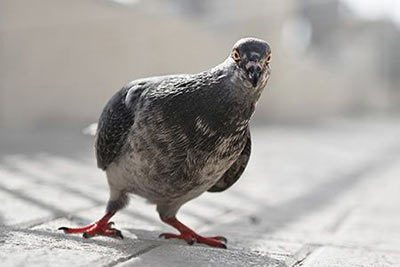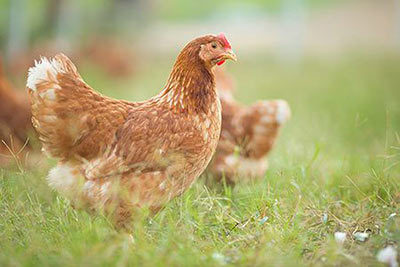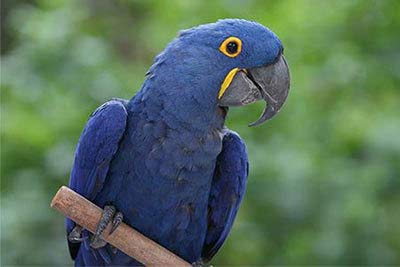Ruby-Throated Hummingbird
Ruby-Throated Hummingbird Facts
| Size | 2.7-3.5 in (7-9 cm); 3.1-4.3 in (8-11 cm) (wingspan) |
| Speed | Up to 30 mph (48 km/h) |
| Weight | 0.07-0.2 oz (2-6 g) |
| Lifespan | 3-5 years |
| Food | Nectar, tree sap, insects, spiders |
| Predators | Falcons, Eurasian jays, cats |
| Habitat | Breeding territory: North America, winter habitat: Central America |
| Order | Apodiformes |
| Family | Hummingbird |
| Scientific name | Archilochus colubris |
| Characteristics | Long thin bill, able to fly backwards |
Main Characteristics
Hummingbirds are birds that can fly backwards. They’re also known for using their beaks to drink nectar from flowers. The ruby-throated hummingbird is the only one to live in eastern Canada and the USA, so much further north than others. The ruby-throated hummingbird also has other special features: Of all birds, it has the fewest feathers and flaps its wings the fastest.
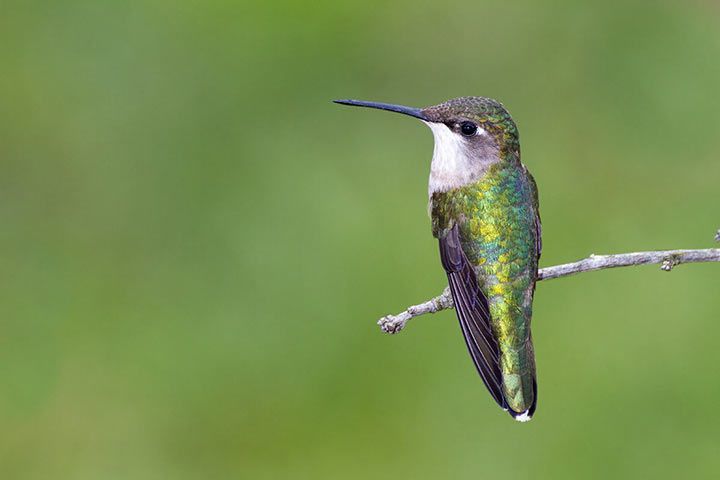
Species
There more than 330 species of hummingbirds. They exclusively live in America, most of them near the equator, mainly in South America. The ruby-throated hummingbird is the only one living in the east of Canada and the USA.
Anatomy and Appearance
Fewest Feathers
The ruby-throated hummingbird holds a record: Of all birds worldwide, it is the one with the least amount of feathers. While the whistling swan has about 25,000 feathers, the ruby-throated hummingbird has about 940.
Difference Between Males and Females
When having a look at our picture gallery, you could think that it shows two different species of birds. But all pictures show ruby-throated hummingbirds. The throats of the males have a distinct red and shimmering color and a greenish back. The females have a white throat and are generally less flashy and colorful. With good reason as this makes it much more difficult for enemies to detect them.
Behavior
Fastest Wing Beat
The ruby-throated hummingbird is one of the fastest birds. Not because of its speed when flying. Of all birds, the ruby-throated hummingbird has the fastest wing beat.
The ruby-throated hummingbird beats its wings up to 200 times per second. Just do the math real quick: 200 times a second is 12,000 times a minute! You could calculate how many beats per hour that would be, but hummingbirds rarely stay in the air that long - usually only when they’re flying south.
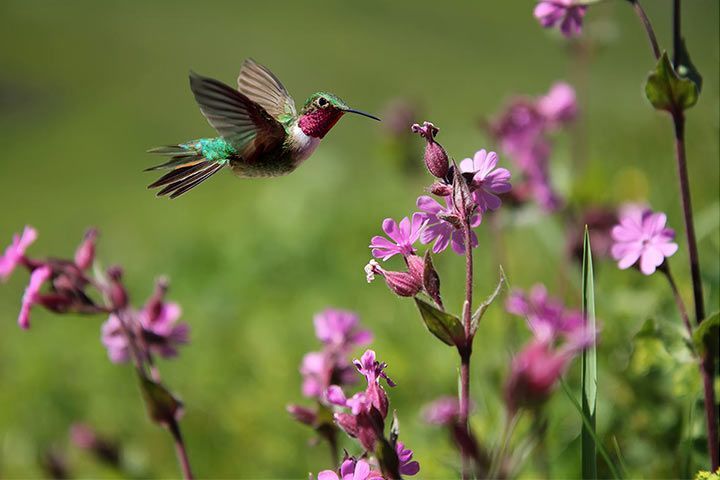
Senses and Abilities
Stamina
When winter comes to their breeding territory in North America, it is getting extremely cold. Too cold for the little birds. Therefore they make a move and fly to Central America, where it is nice and warm. For this they cover a distance of 1,200 miles (2,000 km) and manage a 500 miles (800 km) nonstop flight over the Gulf of Mexico (a huge bay). This flight takes 18-22 hours and these little birds sure need a lot of energy to complete this amazing journey. Before they start off, they stuff themselves with food and double their weight.
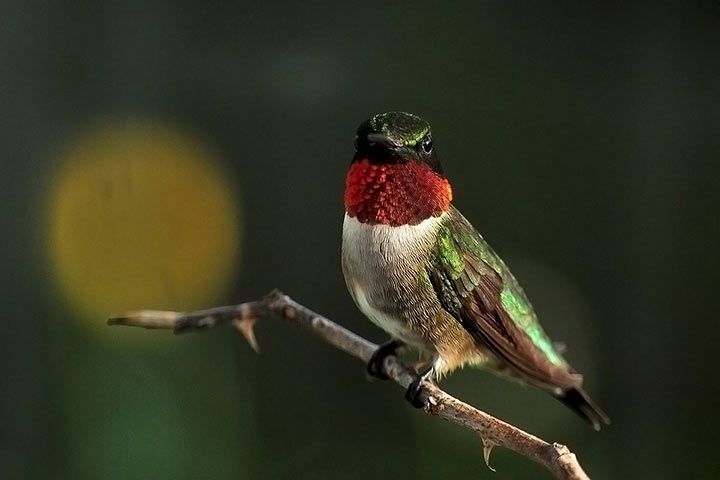
Enemies and Threats
Ruby-throated hummingbirds have many enemies. Not only birds of prey, snakes, cats, and reptiles are threats for the ruby-throated hummingbird. As the bird is so small, it also has to watch out for the praying mantis, orb-weavers, and green darners.
Fun Facts
The Sun Makes the Plumage Shine
If the sun shines on the plumage of the ruby-throated hummingbird, it starts to shimmer beautifully. In the shade, the animals appear fairly gray and dull. There are additional infos on their iridiscent feathers in our general hummingbird profile.
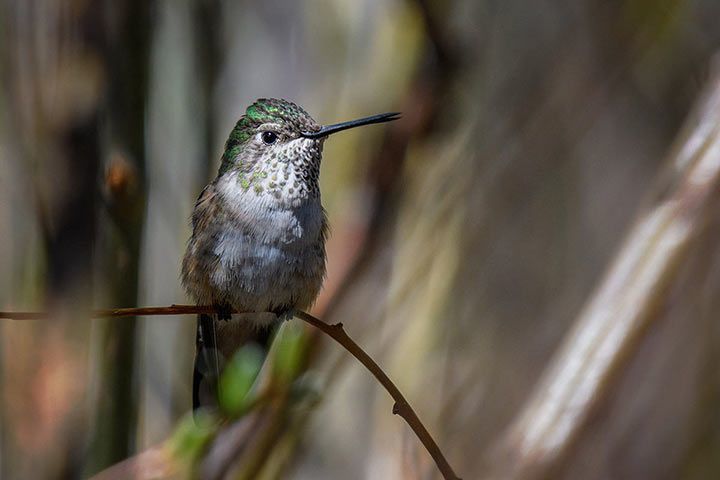
- Watch Now on animalfunfacts.net:
 All About Birds
All About Birds
















